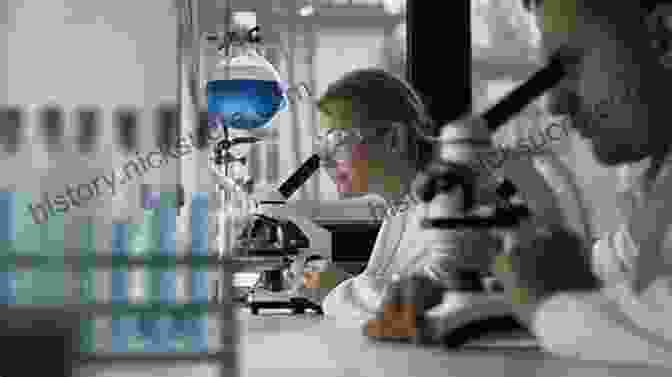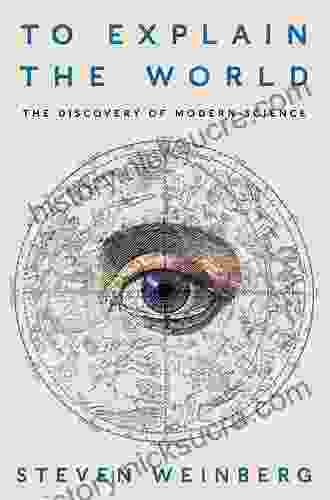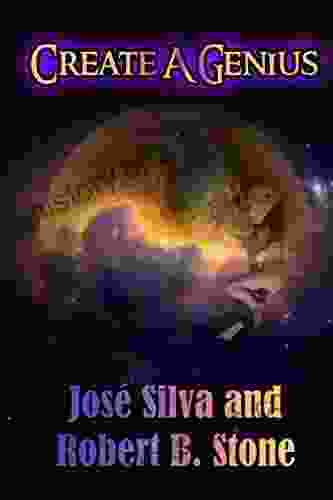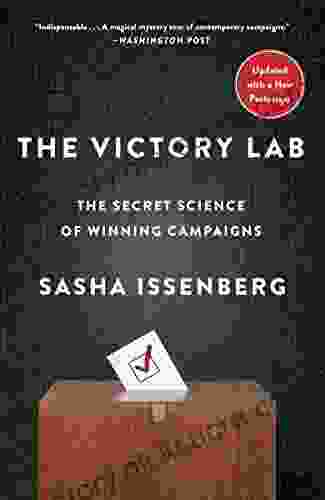The Dawn of Modern Science: A Journey of Discovery, Innovation, and Revolution


Prologue
The dawn of modern science marked a pivotal epoch in human history, characterized by a profound shift in our understanding of the natural world and the scientific method. It was a time of intellectual enlightenment and technological advancements that laid the foundation for the world we live in today. This comprehensive article delves into the fascinating journey of scientific discovery, highlighting the key figures, groundbreaking theories, and transformative inventions that shaped the development of modern science.
4.2 out of 5
| Language | : | English |
| File size | : | 3220 KB |
| Text-to-Speech | : | Enabled |
| Screen Reader | : | Supported |
| Enhanced typesetting | : | Enabled |
| Word Wise | : | Enabled |
| Print length | : | 437 pages |
1. The Forerunners: Ancient and Medieval Roots
The seeds of modern science can be traced back to the ancient civilizations of Greece, Egypt, and Mesopotamia, where scholars and philosophers made significant contributions to mathematics, astronomy, and medicine. Notable figures such as Pythagoras, Euclid, and Archimedes laid the groundwork for scientific inquiry and experimentation.
During the medieval period, Islamic scholars played a vital role in preserving and expanding scientific knowledge. They made significant advancements in optics, algebra, and medicine, building upon the foundations established by the ancient Greeks. Scientists like Al-Khwarizmi, Ibn al-Haytham, and Avicenna left an indelible mark on the development of scientific thought.
2. The Renaissance and Scientific Revolution
The Renaissance witnessed a renewed interest in classical learning and the revival of scientific inquiry. Scholars began to challenge traditional beliefs and dogmas, embracing empirical observation and experimentation. This period marked the beginning of the scientific revolution, which was characterized by a series of remarkable discoveries and innovations.
Nicolaus Copernicus proposed the heliocentric model of the solar system, challenging the long-held geocentric view. Galileo Galilei used the telescope to make groundbreaking astronomical observations, supporting Copernicus's theory. Isaac Newton developed the laws of motion and universal gravitation, laying the foundation for classical mechanics. These scientific breakthroughs transformed our understanding of the universe and paved the way for further advancements.
3. The Enlightenment and Empirical Science
The Enlightenment was a period of intellectual and scientific ferment that emphasized reason and empirical observation. Scientists such as René Descartes and Francis Bacon advocated for the use of the scientific method, which involved formulating hypotheses, conducting experiments, and drawing s based on evidence.
The scientific method became the cornerstone of modern science, allowing researchers to test and verify their theories through rigorous experimentation. This approach revolutionized the way we gather and interpret scientific knowledge, leading to significant advancements in fields such as chemistry, physics, and biology.
4. The 19th Century: Technological Advancements and Scientific Specialization
The 19th century witnessed a surge in scientific and technological advancements. The invention of the microscope and telescope enabled scientists to explore the microscopic world and the vastness of space. The development of photography, X-rays, and the periodic table transformed the fields of chemistry and physics.
Scientific specialization became increasingly prevalent, with researchers focusing on specific disciplines such as genetics, electromagnetism, and thermodynamics. This specialization led to a deeper understanding of complex scientific phenomena and the development of new theories and technologies.
5. The 20th Century: Relativity, Quantum Mechanics, and the Atomic Age
The 20th century was marked by two major scientific revolutions: the theory of relativity and quantum mechanics. Albert Einstein proposed the special and general theories of relativity, challenging our understanding of space, time, and gravity. Werner Heisenberg and other physicists developed quantum mechanics, which revolutionized our understanding of atomic and subatomic phenomena.
The discovery of nuclear fission and the subsequent development of the atomic bomb had a profound impact on the course of history. It also led to the creation of nuclear power plants, providing a new source of energy.
6. The 21st Century: Frontier Technologies and Interdisciplinary Research
The 21st century has witnessed a continued explosion of scientific and technological advancements. The rise of fields such as nanotechnology, biotechnology, and artificial intelligence is transforming the way we live and interact with the world.
Interdisciplinary research is becoming increasingly common, with scientists from different fields collaborating to tackle complex problems and create innovative solutions. This cross-fertilization of ideas is leading to new discoveries and advancements at an unprecedented pace.
7. The Significance of Modern Science
The development of modern science has had a profound impact on human society. It has transformed our understanding of the natural world, led to the development of life-saving technologies and treatments, and shaped our technological landscape.
Modern science has also played a crucial role in addressing global challenges such as climate change and disease outbreaks. It provides us with the tools and knowledge to make informed decisions and develop sustainable solutions for the future.
8.
The journey of modern science has been an extraordinary adventure of discovery, innovation, and revolution. From the early observations of ancient scholars to the groundbreaking theories and technological advancements of today, science has continuously expanded our understanding of the world and improved our lives.
As we continue to push the boundaries of scientific knowledge, we must also embrace the principles of critical thinking, evidence-based reasoning, and collaboration. By harnessing the power of science, we can create a brighter and more sustainable future for generations to come.
4.2 out of 5
| Language | : | English |
| File size | : | 3220 KB |
| Text-to-Speech | : | Enabled |
| Screen Reader | : | Supported |
| Enhanced typesetting | : | Enabled |
| Word Wise | : | Enabled |
| Print length | : | 437 pages |
Do you want to contribute by writing guest posts on this blog?
Please contact us and send us a resume of previous articles that you have written.
 Fiction
Fiction Non Fiction
Non Fiction Romance
Romance Mystery
Mystery Thriller
Thriller SciFi
SciFi Fantasy
Fantasy Horror
Horror Biography
Biography Selfhelp
Selfhelp Business
Business History
History Classics
Classics Poetry
Poetry Childrens
Childrens Young Adult
Young Adult Educational
Educational Cooking
Cooking Travel
Travel Lifestyle
Lifestyle Spirituality
Spirituality Health
Health Fitness
Fitness Technology
Technology Science
Science Arts
Arts Crafts
Crafts DIY
DIY Gardening
Gardening Petcare
Petcare Kimberly Seals Allers
Kimberly Seals Allers Dm Fitzgerald
Dm Fitzgerald Gary Jobson
Gary Jobson Christopher Van Tilburg
Christopher Van Tilburg Ron Kittle
Ron Kittle Thema Bryant Davis
Thema Bryant Davis Dr Mark Sircus
Dr Mark Sircus Tigran Bagdasaryan
Tigran Bagdasaryan Stephen Robson
Stephen Robson Jean Beaman
Jean Beaman Cara Natterson
Cara Natterson Tharik Hussain
Tharik Hussain Philip Gerard
Philip Gerard Peter Aitchison
Peter Aitchison Theodore Kendris
Theodore Kendris Marco Stiantoni
Marco Stiantoni Linda Hibbs
Linda Hibbs Chris Duff
Chris Duff Paul D Ellis
Paul D Ellis Torre Deroche
Torre Deroche Sally Huss
Sally Huss Reynaldo S Galang
Reynaldo S Galang Craig L Farnsworth
Craig L Farnsworth Zigzag English
Zigzag English My Daily Russian
My Daily Russian Richard Grant
Richard Grant Ronald Mangravite
Ronald Mangravite Jane R Hirschmann
Jane R Hirschmann Kay Elder
Kay Elder William Lanouette
William Lanouette Stuart Tyson Smith
Stuart Tyson Smith Dave Rineberg
Dave Rineberg Peter Nabokov
Peter Nabokov Gaia Vince
Gaia Vince Joy Nash
Joy Nash June Goulding
June Goulding Marty Smith
Marty Smith Ji Kim
Ji Kim Thomas Celentano
Thomas Celentano Kevin Brunette
Kevin Brunette Kindle Edition
Kindle Edition Shannon O Gorman
Shannon O Gorman Krysten Harlow
Krysten Harlow Greg Cruthers
Greg Cruthers Anthony Idalion
Anthony Idalion Robert Wright
Robert Wright Michael Wisehart
Michael Wisehart Colleen Hoover
Colleen Hoover Shanaya Summer
Shanaya Summer Tim Macwelch
Tim Macwelch Robin Horsfall
Robin Horsfall Marcia Nathai Balkissoon
Marcia Nathai Balkissoon Tashie Bhuiyan
Tashie Bhuiyan Philip S Harrington
Philip S Harrington Simon Singh
Simon Singh Jayne Storey
Jayne Storey Jordan Christy
Jordan Christy Kathleen Hale
Kathleen Hale Carolyn Henry
Carolyn Henry Carleen Eaton
Carleen Eaton P J Capelotti
P J Capelotti Corey Wade
Corey Wade Keiko Tobe
Keiko Tobe R Scott Jones
R Scott Jones Brian Morris
Brian Morris Henry Bennett
Henry Bennett Stephen Joseph
Stephen Joseph Clara E Hill
Clara E Hill Tasha Powers
Tasha Powers Mamma Margaret
Mamma Margaret Susie Johns
Susie Johns Bernard Darwin
Bernard Darwin Grayson Sinclair
Grayson Sinclair John Derbyshire
John Derbyshire Db King
Db King Steve Raible
Steve Raible Pat Brooks
Pat Brooks Mark Fisher
Mark Fisher John Booss
John Booss Gregg Braden
Gregg Braden Tracy Owens
Tracy Owens Conn Iggulden
Conn Iggulden Bonnie Landry
Bonnie Landry Pedro Casal
Pedro Casal Mike Liner
Mike Liner Mark Harper
Mark Harper Corrine Morgan Thomas
Corrine Morgan Thomas David Warriner
David Warriner Austin M Francis
Austin M Francis Laurence Gardner
Laurence Gardner Melissa Wagner
Melissa Wagner Roberta M Gilbert
Roberta M Gilbert Jessica Wapner
Jessica Wapner Aref Jeribi
Aref Jeribi Julitta Korol
Julitta Korol Martin Ganda
Martin Ganda Anu Partanen
Anu Partanen Frank Close
Frank Close Liz Lee Heinecke
Liz Lee Heinecke Victoria Duerstock
Victoria Duerstock Jim Gourley
Jim Gourley Stephanie Mcmurrich Roberts Phd
Stephanie Mcmurrich Roberts Phd Jason Brick
Jason Brick Chelsea Hanson
Chelsea Hanson Harvey Penick
Harvey Penick Peter Ballin
Peter Ballin Maia Szalavitz
Maia Szalavitz Robert Solomon
Robert Solomon Antonia Bolingbroke Kent
Antonia Bolingbroke Kent Gia Scott
Gia Scott Craig Caudill
Craig Caudill Mark Woods
Mark Woods Walter H Gmelch
Walter H Gmelch John N Maclean
John N Maclean Chris Albon
Chris Albon Thomas H Davenport
Thomas H Davenport Bart Yasso
Bart Yasso Go Books
Go Books You Fuguruma
You Fuguruma Chandelle Lavaun
Chandelle Lavaun Ehren Myers
Ehren Myers Paula Hendricks
Paula Hendricks Headquarters Department Army
Headquarters Department Army Silvana Condemi
Silvana Condemi George J Sanchez
George J Sanchez Kristen Radtke
Kristen Radtke Dan Jones
Dan Jones Jeff Mayers
Jeff Mayers Gary Paulsen
Gary Paulsen Helen Leigh
Helen Leigh Robert B Stone
Robert B Stone William Hanson
William Hanson Steven L Emanuel
Steven L Emanuel Laura Stamm
Laura Stamm Michael Morgan
Michael Morgan Erin Gruwell
Erin Gruwell Abby Knox
Abby Knox Julyen Rose
Julyen Rose Carolyn Jessop
Carolyn Jessop Abbi Glines
Abbi Glines Richard Fortey
Richard Fortey Erving Goffman
Erving Goffman Simon Pridmore
Simon Pridmore Shane Parrish
Shane Parrish Justin Goldman
Justin Goldman Erfun Geula
Erfun Geula Erik Molvar
Erik Molvar Sara Wheeler
Sara Wheeler J Robert King
J Robert King Russell Elkins
Russell Elkins Mark Kurlansky
Mark Kurlansky David Klausmeyer
David Klausmeyer Claudia Sanborn
Claudia Sanborn Elisabeth Sheff
Elisabeth Sheff Alan Bass
Alan Bass Jeff Galloway
Jeff Galloway Deirdre Dolan
Deirdre Dolan Jef Aldrich
Jef Aldrich Phil Genova
Phil Genova Dawn Hogue
Dawn Hogue Robert Clark
Robert Clark Dan Michaelson
Dan Michaelson Lawrence J Cohen Phd
Lawrence J Cohen Phd Jonathan Robinson
Jonathan Robinson Archie Kalokerinos
Archie Kalokerinos James Atkinson
James Atkinson George Sandford
George Sandford Marie Lu
Marie Lu Robbie Thompson
Robbie Thompson John Snygg
John Snygg Ariella Moon
Ariella Moon Mark Stavish
Mark Stavish Dennis J Sweeney
Dennis J Sweeney Stephanie R Haynes
Stephanie R Haynes Melyssa St Michael
Melyssa St Michael Bill Keenan
Bill Keenan Lauren Kahl
Lauren Kahl Joseph Distefano Iii
Joseph Distefano Iii Grant Cunningham
Grant Cunningham Elton Moraes
Elton Moraes Heather Turgeon
Heather Turgeon Jackson Carter
Jackson Carter Geraldine Brooks
Geraldine Brooks James Cordrey
James Cordrey Deborah Miller
Deborah Miller Jason Hanson
Jason Hanson Eli Lizorkin Eyzenberg
Eli Lizorkin Eyzenberg Craig Storti
Craig Storti Ton Viet Ta
Ton Viet Ta Giovanni Amato
Giovanni Amato Mira Ptacin
Mira Ptacin Eric Coll
Eric Coll Irfan Ahmad
Irfan Ahmad Michael Pearle
Michael Pearle Charlie Meyers
Charlie Meyers Steve Pease
Steve Pease Martha Cheng
Martha Cheng Stella Cottrell
Stella Cottrell Jacqueline Melvin
Jacqueline Melvin Rael Isacowitz
Rael Isacowitz Kevin Salwen
Kevin Salwen Proper Education Group
Proper Education Group Gary Morris
Gary Morris Herbert Warren Wind
Herbert Warren Wind Joy Jones
Joy Jones Michael Wenz
Michael Wenz Miles Olson
Miles Olson George Orwell
George Orwell David J Anderson
David J Anderson Anya Kuvarzina
Anya Kuvarzina Antonio Diego
Antonio Diego Michael Tyler
Michael Tyler Jonathan Benson
Jonathan Benson Ken Adcock
Ken Adcock Nystce Exam Secrets Test Prep Team
Nystce Exam Secrets Test Prep Team Barbara Pachter
Barbara Pachter Carl Sagan
Carl Sagan George Kimball
George Kimball J Hannigan
J Hannigan Jerry R Thomas
Jerry R Thomas Barbara Brown Taylor
Barbara Brown Taylor Matthew M Hurley
Matthew M Hurley Brandon Royal
Brandon Royal Jeremy Paxman
Jeremy Paxman Julie Murphy
Julie Murphy Karen Ehman
Karen Ehman Carrie Shuchart
Carrie Shuchart Karema Mcghee
Karema Mcghee 2nd Edition Kindle Edition
2nd Edition Kindle Edition David Robinson
David Robinson Gina Ford
Gina Ford Michelle Oberman
Michelle Oberman Henrik Gert Larsen
Henrik Gert Larsen Philip Pullman
Philip Pullman Sophie Gonzales
Sophie Gonzales Markus Zusak
Markus Zusak Cynthia Chen Mcternan
Cynthia Chen Mcternan Kelly Jensen
Kelly Jensen Leon Edward
Leon Edward Shari Stauch
Shari Stauch Ken Setterington
Ken Setterington Leigh Cowart
Leigh Cowart Lenyfer Garrido
Lenyfer Garrido James Ori
James Ori Jenny Moore
Jenny Moore Sean Poage
Sean Poage Don Kirk
Don Kirk Joshua Enyart
Joshua Enyart Sonia Weyers
Sonia Weyers Tara Grayce
Tara Grayce Yassine Tounsi
Yassine Tounsi Dr Lucie Rivera
Dr Lucie Rivera Paul Lockhart
Paul Lockhart Winifred Conkling
Winifred Conkling Karen Gravelle
Karen Gravelle Sarah Guthals
Sarah Guthals Steve Bo Keeley
Steve Bo Keeley Richard Eng
Richard Eng Hendrik Ebbers
Hendrik Ebbers Lj Andrews
Lj Andrews Marie Tillman
Marie Tillman April Lara
April Lara Jean Anthelme Brillat Savarin
Jean Anthelme Brillat Savarin Mark Broadie
Mark Broadie Jenny Hall
Jenny Hall Rebecca Stobaugh
Rebecca Stobaugh Bradford Angier
Bradford Angier Lara Kolawole
Lara Kolawole Richard A Horsley
Richard A Horsley Shavona L Floyd
Shavona L Floyd Estelle Frankel
Estelle Frankel Louie Giglio
Louie Giglio Harald E L Prins
Harald E L Prins Katharine A Phillips
Katharine A Phillips Rick Riordan
Rick Riordan Joe Oswald
Joe Oswald Michael Walker
Michael Walker Jennifer Karnopp
Jennifer Karnopp H W Brands
H W Brands Megan Whalen Turner
Megan Whalen Turner Joe Farinaccio
Joe Farinaccio Paul Ortiz
Paul Ortiz Odessa Gillespie Black
Odessa Gillespie Black Peggy Mohan
Peggy Mohan Virginia M Axline
Virginia M Axline Michelle Segar Phd
Michelle Segar Phd Ian Condry
Ian Condry Jessica Joelle Alexander
Jessica Joelle Alexander Jodi Lee
Jodi Lee Justin A Reynolds
Justin A Reynolds John S Mbiti
John S Mbiti Art Smith
Art Smith Lessie Myles
Lessie Myles Cari Rosen
Cari Rosen John J Donohue
John J Donohue Peggy A Houglum
Peggy A Houglum Stephanie Dalley
Stephanie Dalley Katie Rain Hill
Katie Rain Hill Jessica Dixie Mills
Jessica Dixie Mills Arrl Inc
Arrl Inc John Vonhof
John Vonhof Roger Kahn
Roger Kahn Randy Gerke
Randy Gerke Tim Collins
Tim Collins Doug Gelbert
Doug Gelbert Philip Mcmichael
Philip Mcmichael Lynn Marriott
Lynn Marriott Denny Emerson
Denny Emerson Antoine Savine
Antoine Savine J R Ward
J R Ward Caroline Gallup
Caroline Gallup Charles C Patrick
Charles C Patrick Rebecca Schiller
Rebecca Schiller Supersummary
Supersummary Sahara Foley
Sahara Foley Karl F Kuhn
Karl F Kuhn Dianne Lake
Dianne Lake Emma Frisch
Emma Frisch Lindsay Powers
Lindsay Powers Meg Meeker
Meg Meeker Harry Vardon
Harry Vardon Jennifer M Bay Williams
Jennifer M Bay Williams Philip C Plait
Philip C Plait Ian Freeman
Ian Freeman Ogi Ogas
Ogi Ogas Sarah H Parcak
Sarah H Parcak Wyatt Mclaren
Wyatt Mclaren Jon Finkel
Jon Finkel Sasha Issenberg
Sasha Issenberg Michael Symon
Michael Symon Mark Sundeen
Mark Sundeen Aquila Chrysaetos
Aquila Chrysaetos Ennki Hakari
Ennki Hakari Paige Rawl
Paige Rawl Tina Nicastro Maom Lac
Tina Nicastro Maom Lac Heather Renee
Heather Renee Derek Dellinger
Derek Dellinger Antonia Felix
Antonia Felix Nigel Foster
Nigel Foster Michael A Cremo
Michael A Cremo James C Dobson
James C Dobson Richard Griffith
Richard Griffith Patricia Ottaviano
Patricia Ottaviano Iain Mcgilchrist
Iain Mcgilchrist Jessie James Decker
Jessie James Decker Sharon Begley
Sharon Begley Ta Nehisi Coates
Ta Nehisi Coates Samantha Michaels
Samantha Michaels Alessandra Belloni
Alessandra Belloni Daniel R Montello
Daniel R Montello Julie Tallard Johnson
Julie Tallard Johnson Maya Angelou
Maya Angelou Christina Thompson
Christina Thompson Jennifer Scribner
Jennifer Scribner The Pinnacle Review
The Pinnacle Review Jenny B Jones
Jenny B Jones Laurie Halse Anderson
Laurie Halse Anderson James L Swanson
James L Swanson Revised Edition Kindle Edition
Revised Edition Kindle Edition Jacki Pritchard
Jacki Pritchard Joni L Mihura
Joni L Mihura Rick L Huffman
Rick L Huffman Karen Newell
Karen Newell Panos Y Papalambros
Panos Y Papalambros Charles C Pinter
Charles C Pinter Amy R Carpenter
Amy R Carpenter Brett Friedman
Brett Friedman Felicity Pulman
Felicity Pulman Sherry Blackman
Sherry Blackman Diana Raab
Diana Raab Joe Kelsey
Joe Kelsey Kate Barrows
Kate Barrows Cheng Liu
Cheng Liu Tommy Nelson
Tommy Nelson Stephen E Dew
Stephen E Dew Emilio Iodice
Emilio Iodice Daniel Bezman
Daniel Bezman Tom Burns
Tom Burns Colin Stroud
Colin Stroud Justi Carey
Justi Carey Creek Stewart
Creek Stewart Louise Douglas
Louise Douglas Donald Frias
Donald Frias Ernest Thompson Seton
Ernest Thompson Seton William Murakami Brundage
William Murakami Brundage Zac Williams
Zac Williams Jim Ross
Jim Ross Harvey Berman
Harvey Berman Lou Paget
Lou Paget Dan Blanchard
Dan Blanchard Andrew Miller
Andrew Miller Ruth Albee
Ruth Albee Jody Houser
Jody Houser Anya Hayes
Anya Hayes Antony Felix
Antony Felix Liz Wiseman
Liz Wiseman Prince Daniels Jr
Prince Daniels Jr Mr Michael Quilty Maguire
Mr Michael Quilty Maguire Eliana De Las Casas
Eliana De Las Casas Marc Sedaka
Marc Sedaka Pharmacology University
Pharmacology University Laura Taylor Namey
Laura Taylor Namey Mario Batali
Mario Batali Budd Bailey
Budd Bailey Susan B Bastable
Susan B Bastable Daniela Sacerdoti
Daniela Sacerdoti Richard Sale
Richard Sale Michael J Hathaway
Michael J Hathaway Jennifer Comeaux
Jennifer Comeaux Todd Michael St Pierre
Todd Michael St Pierre Inc Barcharts
Inc Barcharts Antony Cummins
Antony Cummins Sara Lyon
Sara Lyon Matt Appling
Matt Appling Peter Newby
Peter Newby Joe Brooks
Joe Brooks Robert J Sweet
Robert J Sweet Mila Markle
Mila Markle Marge Foley
Marge Foley Jason Reynolds
Jason Reynolds Melissa Sperka
Melissa Sperka Julie Hall
Julie Hall Chris Carmichael
Chris Carmichael Regan Parker
Regan Parker Sherry Thomas
Sherry Thomas Nancy Clark
Nancy Clark Second Edition Revised Kindle Edition
Second Edition Revised Kindle Edition Naoko Abe
Naoko Abe Territory Supply
Territory Supply Tamim Ansary
Tamim Ansary Austyn Lee
Austyn Lee Donald B Deyoung
Donald B Deyoung David J Ley
David J Ley Hamish Haswell Smith
Hamish Haswell Smith Susy Callory
Susy Callory Michael Mccree
Michael Mccree Douglas Riley
Douglas Riley Tom Igoe
Tom Igoe Joseph F Healey
Joseph F Healey John Miller
John Miller Gene Hamilton
Gene Hamilton Tom Wolfe
Tom Wolfe Jen L Grey
Jen L Grey Benny Lewis
Benny Lewis Chuck Carlson
Chuck Carlson Colleen Doyle Bryant
Colleen Doyle Bryant Michelle Quach
Michelle Quach Herbert L Gravitz
Herbert L Gravitz Robert J Sternberg
Robert J Sternberg Benoit Mandelbrot
Benoit Mandelbrot Susan Campbell Bartoletti
Susan Campbell Bartoletti Jerzy Jezierski
Jerzy Jezierski Gigi Sayfan
Gigi Sayfan J T Burns
J T Burns Steve Sheward
Steve Sheward Roger Guay
Roger Guay Fiore Tartaglia
Fiore Tartaglia Eugene V Resnick
Eugene V Resnick James Porzio
James Porzio Mike Malaska
Mike Malaska 1st Ed 2020 Edition Kindle Edition
1st Ed 2020 Edition Kindle Edition Spanked Teen
Spanked Teen Arous Brocken
Arous Brocken
Light bulbAdvertise smarter! Our strategic ad space ensures maximum exposure. Reserve your spot today!

 Doug PriceThe Making of a State Champion, or at Least a Good Man: Granddaddy's Secrets...
Doug PriceThe Making of a State Champion, or at Least a Good Man: Granddaddy's Secrets... W. Somerset MaughamFollow ·16.6k
W. Somerset MaughamFollow ·16.6k Julio CortázarFollow ·13.6k
Julio CortázarFollow ·13.6k Edmund HayesFollow ·7.1k
Edmund HayesFollow ·7.1k Cruz SimmonsFollow ·15.1k
Cruz SimmonsFollow ·15.1k Lawrence BellFollow ·3.2k
Lawrence BellFollow ·3.2k Eli BlairFollow ·11.4k
Eli BlairFollow ·11.4k Darnell MitchellFollow ·15.5k
Darnell MitchellFollow ·15.5k William PowellFollow ·11.9k
William PowellFollow ·11.9k

 Bernard Powell
Bernard PowellAn Elusive World Wonder Traced
For centuries, the...

 Samuel Ward
Samuel WardAce Your Motorcycle Permit Test: 300 Essential Questions...
Obtaining a...

 Boris Pasternak
Boris PasternakTips for Leveling Up Refinement: Doing it With Class
Refinement is a...

 Willie Blair
Willie BlairThe Spare Room: A Haven for Art and Creativity in London
The Spare Room is a unique and inspiring...

 Howard Blair
Howard BlairThe Run-Walk-Run Method: Your Gateway to Running Success
Unlock Your Inner Runner ...
4.2 out of 5
| Language | : | English |
| File size | : | 3220 KB |
| Text-to-Speech | : | Enabled |
| Screen Reader | : | Supported |
| Enhanced typesetting | : | Enabled |
| Word Wise | : | Enabled |
| Print length | : | 437 pages |












